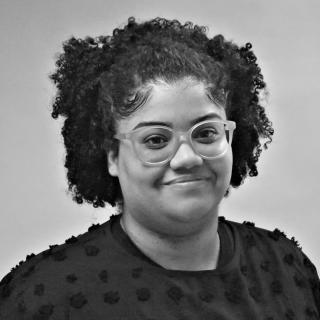
Student finds purpose in Higher Education
Cristina Lemus, a Central American graduate student at Cedar Crest College, is committed to leaving a legacy.
Cedar Crest College graduate student Cristina Lemus is committed to leaving a legacy wherever she goes—through research, advocacy, and mentorship, she intends to be the person students depend on.
Lemus graduated with a Bachelor of Science in Forensic Science from the University of Central Florida (UCF) in 2022, after graduating from Valencia College medical track, where the first-generation student needed spinal fusion surgery. She shares that this diagnosis prompted her desire to do in-depth research, explaining that she wanted to be “the first doctor to correct spinal posture without using metal rods and screws.”
She obtained an Associate of Arts degree from Valencia College in 2017 but shares that her surgery recovery was challenging.
“I had this seven-hour routine surgery. It was rigorous. It was a one-year recovery,” Lemus tells AL DÍA. “I could not bend for three months. But I learned that I wanted to be a doctor because at that time, not now, I always wanted to understand people's struggles.”
During her time at UCF, her passion for healthcare was “fading.” Lemus was part of the highly prestigious program, the Ronald E. McNair Post-Baccalaureate Achievement Program (McNair Scholars Program), with notable alumni of the programs, including Oprah Winfrey, John Quiñones, Henry Bonilla, and Viola Davis, to name a few.
The McNair Scholars Program is a federal TRIO program funded by the U.S. Department of Education that provides educational opportunities to first-generation college students with financial needs or underrepresented students that demonstrate strong academic potential.
But after seeing a forensic science catalog, she decided to venture into this field, which she says “was the best decision I have made.”
In 2021, as part of her project: Homogeneity of the elemental composition of tires, and under the primary investigator (PI) Dr. Matthieu Baudelet at the Forensic Spectroscopy Lab, she learned to use “the application of science in the criminal justice field and give answers to victim families.” Ultimately, realizing she was more passionate about “the research than the medical role.” Deciding to continue challenging and questioning her newfound knowledge at the Cedar Crest graduate program.
Research helped me realize that the world of science is really needed.
Cedar Crest College is a predominantly white institution (PWI), with only 39% being students of color and 37% being first-generation students.
RELATED CONTENT
Lemus is the Latinx Inclusion Advocate for the Center for Diversity and Inclusion, the former peer coach, and teaching assistant, shares the students “who are dropping out of Cedar Crest are Latinx first-gen students,” which is why she is “keen on focusing on making a community here for them.” She has organized several events: such as the Higher Education Latinx Panel, Afro-Latino Celebration, and Dia de Muertos Celebration, to show the things practiced in the Latinx community.
“Those are examples of events that students are now very interested in joining the club,” explained Lemus referencing the Latinx Club she will be starting in August—the e-board has already been established.
Cedar Crest allowed Lemus to create a new graduate preparation program, noting that she is excited to build curriculums and work with marijuana this summer as part of her Limitations of chemiluminescent detection on cannabis edibles project under the supervision of primary investigator Dr. Lindsey Welch at the Cedar Crest Forensic Toxicology Lab.
Despite conducting countless research, the Central American Latina admits she was not a straight-A student and was at the bottom, noting that “I was always at the bottom, but someone had to be there, and that was me.”
Lemus admits to spending eight years as an undergraduate student; instead of the traditional four years.
“I have learned with academia and life that those grades do not define your success in the future,” assures Lemus, who was on academic probation but understands that “research is like a relationship. If this does not work, let us talk.” She does not want aspiring researchers to give up but to know that “anything you want to do in life, go for it.”
"I like to say no matter where I end up going, I'm going to leave a legacy," Lemus assured.
Everywhere we look around is a science.
She sees herself working in academia—contemplating whether to get an EdD (Doctor of Education) or work within education and get a Ph.D. in chemistry education, concluding that “academia is my passion.”











LEAVE A COMMENT:
Join the discussion! Leave a comment.